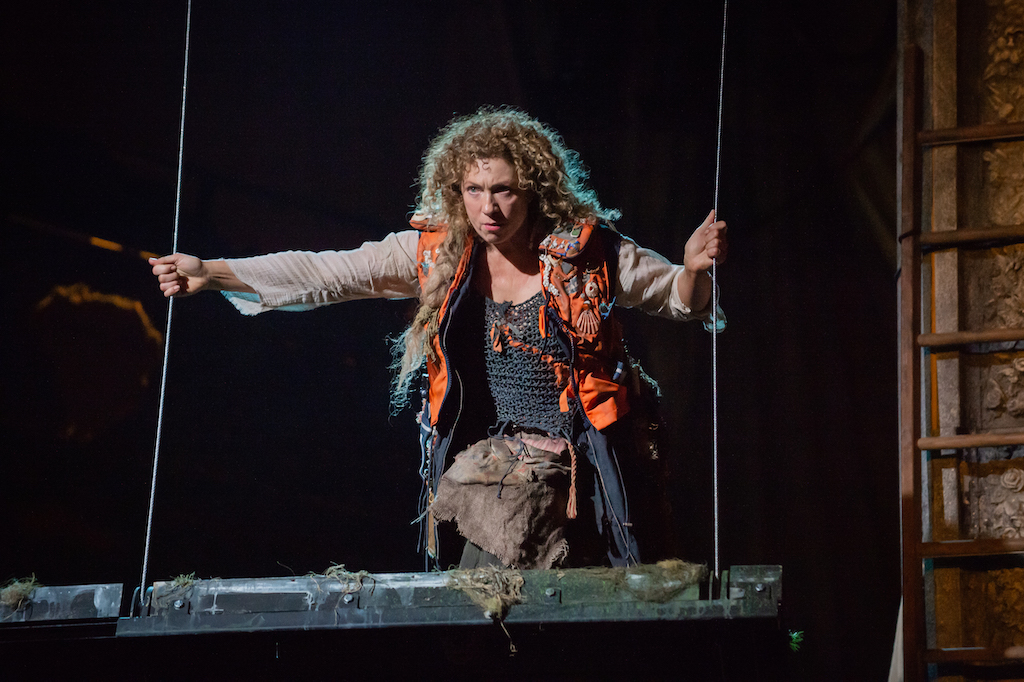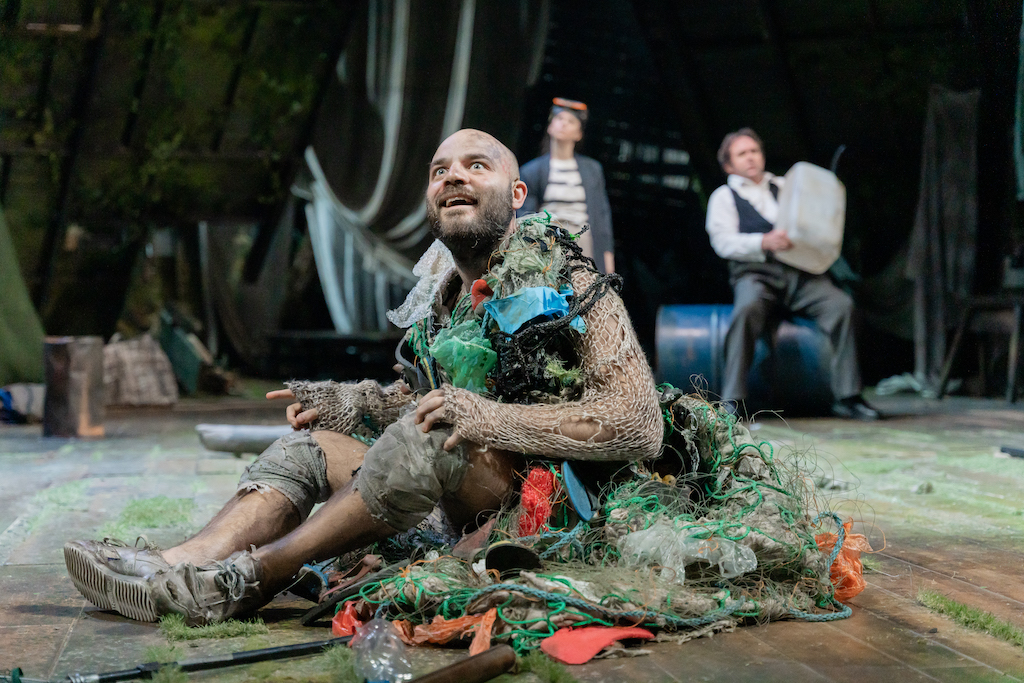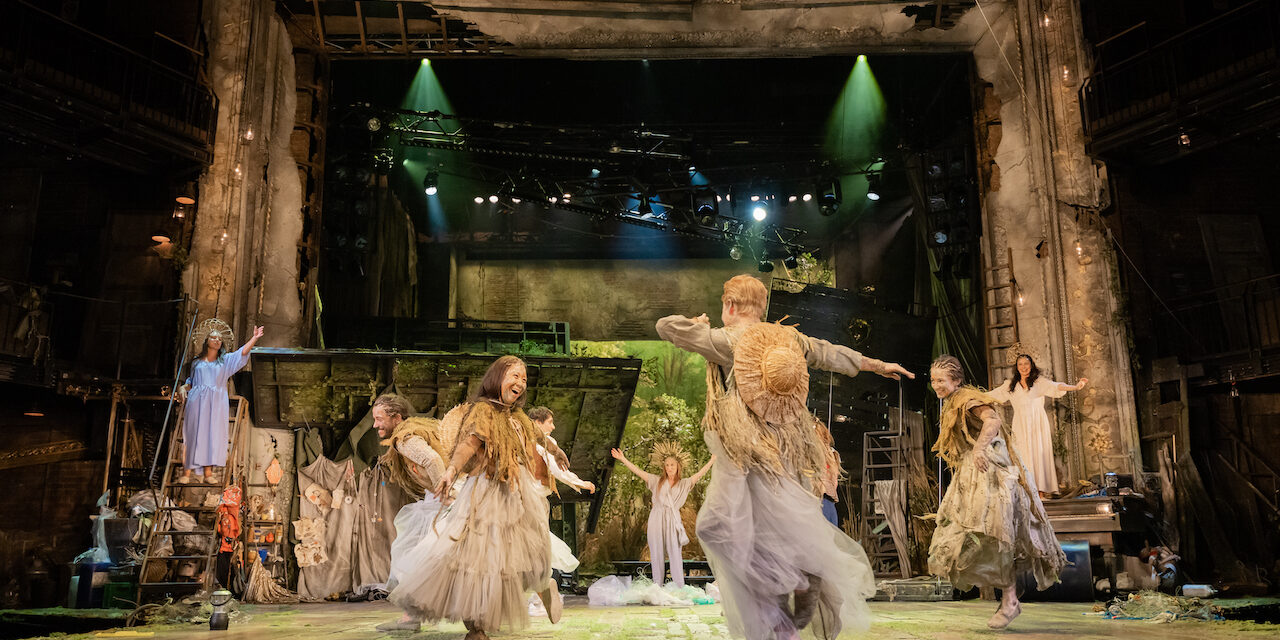
26 January – 4 March
A powerful female Prospero sets the tone in this ambitious and inventive production of Shakespeare’s final, single author, play The Tempest.
Alex Kingston’s compelling performance brings a new angle to the central role. She maintains her fearsome control of the troubled humans and spirits that inhabit her magical island, while at the same time bringing a novel intimacy to the mother-daughter bond. We meet her with Miranda on the edge of a makeshift structure that serves as her ‘cell’, but which also hints at the privation of all mothers and daughters struggling to survive after human generated catastrophe.
RSC newcomer Jessica Rhodes brings a delightful blend of playfulness and innocence to the character of Miranda and her love scenes with the anguished prince Ferdinand (Joseph Payne) are deeply moving. Indeed, all the central characters are portrayed with patent vulnerability, emphasising one of the prevailing themes of Elizabeth Freestone’s production, the fragility of our human and natural world.
Heledd Gwynn’s Ariel is graceful, mischievous, and athletic. She has a beautiful singing voice, filling the playing space with sound and movement as she soars above a set strewn with the remnants of broken lives. Her liberation and parting from the woman who has ruled her for so long captures the pain that can accompany even the most longed for liberation. In this sense she is the obverse of Caliban, whose brutality and suffering are starkly drawn by Tommy Sim’aan, with no attempt to sweeten the colonial nature of his enslavement.

The Tempest is a difficult play to stage. The courtly characters can feel flat and one dimensional, inspired by ambition and greed, but with little context in which those vices can develop. Here they are all ably played and differentiated so that each stands out as an individual. But they are, necessarily, pawns in the drama. The standard comic turns are equally well done. But we don’t remember The Tempest for its clowns. We remember it for the richness of the language, the unforgettable lines, the haunting songs, the depth and complexity of the themes. The production tackles these head on with bold staging, a design littered with plastic detritus, a crumbling proscenium arch and the sides of an ancient wreck that rise and fall to become platforms for the floating spirits. The redeeming force of nature is emphasised by the masque of Ceres and the marriage of the two young people.
It’s hard to characterise the play. The ending is happy, but it would be wrong to call it a comedy. The narrative unravels on a single island in the space of three hours. Yet still it feels sprawling and complex, partly because so many critical events take place before the shipwreck that sets off the drama. What makes the play so special is the role of Prospero as magician and prophet. Alex Kingston has captured that specialness and given it a modern twist. She offers us a warning. The references in her speech after the masque to the ‘insubstantial pageant faded’ and ‘the great globe itself’ have often been taken to refer to Shakespeare’s departure from the theatre. But in the light of the pervasive themes of this production, the fragility of nature, the significance of human agency and survival, the contrasting powers of destruction and creation, her words take on an urgent contemporary significance.
★★★★☆ Ros Carne 3 February 2023
Photo credit: Ikin Yum


